 |
Welcome
Welcome to the September 2012 issue of the Social Sciences
eNews!
 Find us on Facebook
Find us on Facebook
Make a Difference Invest in tomorrow's leaders today. Learn
how!
London 2012
Congrats to all of our Olympic anteaters on incredible performances in the 2012 games! Click here
for a recap.
Upcoming Events
Social Sciences
in the Media
The pirate hour
Dalton, The Pirate Hour
Marketing finance in the aftermath of crisis
Nelms, Charisma Consumer Market Studies
Fed study: States with low welfare growth, simple tax rates grow faster
Neumark, Newamax
Democrats, Republicans woo Latinos at conventions
DeSipio, KQED News
Romney and Latino voters: Does he stand a chance?
DeSipio, 89.3 KPCC
Viredo Espinosa dies; Cuban Abstract Expressionist painter was 83
Fernandez, The Washington Post, Coastline Pilot and ArcaMax
Sneak attacks deliver punchier message, RNC protesters say
Snow, Tampa Bay Times
Deportation nation
Rumbaut and Dingeman, The New York Times
Political science meeting faces boycott over gay rights
Smith, Daily Me
Square becomes cool for many merchants
Maurer, Houston Chronicle
Drone warfare presents moral challenge
Brunstetter, The Courier-Journal
R. Duncan Luce dies at 87; UC Irvine mathematical psychologist
Luce, Los Angeles Times
GOP draws line on immigration
DeSipio, Tucson Citizen and Arizona Republic News
Does the minimum wage hurt the poor?
Neumark, NPR Marketplace
What makes a protest successful?
Meyer, KJZZ.org
U.S. intelligence tests crowd-sourcing against its experts
Steyvers, Lee, Batchelder, Shin and Merkle, Los Angeles Times
Convention cities try to strike security, protest balance
Meyer, USA Today, Daily Records, DNJ.com, The Leaf Chronicle, My Ventral Jersey and Cincinnati.com
Aspects of religion are very much embedded in public life (op-ed)
Norman, iPolitics
A vice president's chances
Grofman and Kline, The Register-Guard
Lang and O'Leary Exchange
Maurer, CBC
Why retailers are teaming up for mobile payment
Maurer, NPR Marketplace Tech
How Paul Ryan transformed a Seinfeldian election
Rosenberg, CBC News and Yahoo! News
UCI mathematical psychologist R. Duncan Luce has died
Luce, OC Metro
Paul Ryan: America's first widow's-peaked vice-president?
Rosenberg, New York Magazine
Punjabi Sikh-Mexican American community fading into history
Leonard, The Washington Post
Influential UC Irvine scholar Robert Duncan Luce dies
Luce and Saari, 89.3 KPCC
Paul Ryan shirtless? We're more interested in his widow's peak
Rosenberg, Christian Science Monitor and Yahoo! News
Olympics briefs
Bailey, Huntington Beach Independent
The last Olympics event
Don Saari, The Wall Street Journal
Gurudwara shooting: How Sikhs migrated to US, fought prejudice and built a community
Leonard, The Economic Times
Olympics roundup: CdM's Anae aims for gold
UCI Olympic alumni, Daily Pilot
O.C. WATCH
UCI Olympic alumni, Orange County Register
For Romney, history suggests VP pick will provide exceedingly modest bump, if any
Grofman and Kline, The Washington Post
Saltsman: Minimum-wage hypocrisy
Neumark, Washington Times
Buying coffee, and giving up some privacy
Maurer, NPR Marketplace Tech
Starbucks-Square alliance worth $25m
Maurer, Industry Leaders Magazine and International Business Times
Mobile payments: The way of the future?
Maurer, CNBC
Starbucks and Square to team up
Maurer, The New York Times
Lonely at the top
Dalton, The Economist
Olympics: Gibb, Rosenthall stunned in London
UCI Olympic alumni, Daily Pilot
As Starbucks adopts 'Square' payments, will other merchants follow?
Maurer, NPR, WNYC and WUWM 89.7
Goodbye cash: Starbucks partners With mobile payment app "Square"
Maurer, Gothamist
American-US Airways merger would hurt consumers, report says
Brueckner, Los Angeles Times
Knapp brothers sizzle at Costa Mesa City Championship
Knapp, Huntington Beach
San Clemente has ties to U.S. Olympic volleyball
Thornton, Orange County Register
USA Men suffer first water polo setback with 11-6 loss to Serbia
UCI Olympic alumni, USA Water Polo, Boxscorenews.com and IHaveNet.com
The queue: Payment platforms lining up (op-ed)
Maurer, iHub Research
|
Pass it on
Know anyone who might be interested in our newsletter? Email us to subscribe.
|
 |
 |
New faculty in social sciences bring diverse research expertise and experience
Interests span public policy innovation, social inequality, environmental politics, philosophy of mathematics and of physics, and human decision
making processes
The School of Social Sciences is happy to welcome a new Chancellor's Professor, six new assistant professors and one lecturer with potential security
of employment to its fall 2012 faculty lineup. With research interests ranging from environmental politics of oil spills and space exploration to
mathematical models that help explain deficits in decision processes associated with risky behaviors such as drug abuse, their scholarly contributions
will further expand the diversity and interdisciplinary research strengths for which the School of Social Sciences is known.
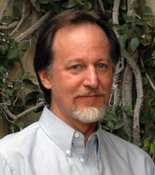
Charles Ragin
Chancellor's Professor, Sociology
Ph.D., Sociology, University of North Carolina at Chapel Hill, 1975
Charles Ragin comes to UCI as a Chancellor's Professor, a title reserved for faculty members who have demonstrated exceptional academic merit and
promise for ongoing scholarly achievement. His primary contributions are methodological; he develops and uses set-theoretic models to explain and
compare detailed, qualitative data across multiple datasets. His methods for qualitative comparative and fuzzy set analyses have been widely adopted in
sociology and political science, and his approaches are making inroads in medicine, engineering, and organizational studies. In addition to his
methodological work, Ragin focuses on social inequality, the welfare state, and ethnic political mobilization. He is the author of more than 100
articles in research journals and edited books, and he has developed several software packages for data analysis. He is a past recipient of the
International Social Science Council Stein Rokkan Prize and the Policy Studies Organization Donald Campbell Award for Methodological Innovation, and he
received honorable mention for the American Sociological Association Barrington Moore, Jr. Award. His work has been funded by the National Science
Foundation, Ford Foundation, Mellon Foundation and Kenan Foundation. Prior to joining the faculty at UCI, Ragin held appointments at Indiana University,
Bloomington, Northwestern University, the University of Oslo in Norway, and most recently, the University of Arizona, where he was a political science
and sociology professor.
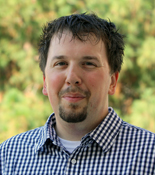
Jacob Avery
Assistant Professor, Sociology
Ph.D., Sociology, University of Pennsylvania, 2010
M.A, Sociology, University of Pennsylvania, 2007
Jacob Avery has focused primarily on the causes, effects and experiences of homelessness, using fieldwork methods to study urban poverty, social
inequality, and the delivery of human services from an interactionist perspective. His work has been funded by the National Institutes of Health and
U.S. Department of Health and Human Services. His findings have been published in Contexts and Ethnography, and he has a book manuscript in progress
that examines how a network of chronically homeless and chemically addicted individuals experience life, and how and why they subsist without regular
aid from formal systems of support. He comes to UCI following a two-year post doctoral fellowship at the National Poverty Center in the Gerald R. Ford
School of Public Policy at the University of Michigan.

Valerie Olson
Assistant Professor, Anthropology
Ph.D., Anthropology, Rice University, Houston, Texas, 2010
Valerie Olson is a sociocultural anthropologist whose field work has taken her from the ocean subsurface of the Gulf of Mexico where she's examining
causes and consequences of the Deepwater Horizon oil spill, to NASA space centers where she's studying the environmental politics of outer space
exploration. American Extreme: An Ethnography of Astronautical Visions and Ecologies, her book-in-progress, examines how engineers, scientists,
physicians, and architects seek to turn humans into spacefarers and, in the process, connect outer space to the terrestrial environment. She's published
articles on this topic in the Psychology of Space Exploration: Contemporary Research in Historical Perspective, and she has two more articles that have
been accepted for publication in Anthropological Quarterly. Her previous work, which focused on issues of nursing staffing and patient care, has been
featured in Medical Anthropology and the Journal of Nursing Administration.

Sean Walsh
Assistant Professor, Logic & Philosophy of Science
Ph.D., University of Notre Dame, 2011
Sean Walsh studies the philosophy of mathematics, the philosophy of logic and mathematical logic. A graduate of the University of Notre Dame, he's spent
the past year as a postdoctoral fellow at the University of London where he contributed to a European Research Council-funded study aimed at better
understanding logical paradoxes. His work has been published in the journal Kant-Studien and has a forthcoming article in the Annals of Pure and Applied
Logic. He's presented his research at annual meetings and seminars in Paris, Chicago, London and Budapest. His current research is funded by an award
and three-year fellowship he received in 2011 from the Kurt Godel Society with support from the John Templeton Foundation.
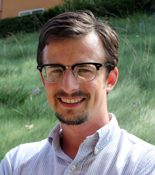
Jim Weatherall
Assistant Professor, Logic & Philosophy of Science
Ph.D., Logic & Philosophy of Science, University of California, Irvine, 2012
Ph.D., Mathematics and Physics, Stevens Institute of Technology, 2009
M.F.A., Creative Writing, Fairleigh Dickinson University, 2010
A.M. (Master's), Physics, Harvard University, 2005
James (Jim) Weatherall is a 2012 UCI alumnus whose research focuses on the philosophy of physics, philosophy of science and mathematical physics. His
research has shown that, in addition to the theory of general relativity, classical physics can be used to explain the fundamental concept of inertial
motion. He's published four philosophy of physics articles, including one in the journal Philosophy of Science for which he currently serves as managing
editor. He's co-written five papers in top-tier physics journals, published nine popular science articles, and he has a forthcoming book, The Physics of
Wall Street: A Brief History of Predicting the Unpredictable, with Houghton, Mifflin, and Harcourt Press. Weatherall is a past recipient of the UCI
Alumni Association Lauds & Laurels Outstanding Graduate Student Award and Justine Lambert Graduate Prize in the Foundations of Science, and the
University of Western Ontario Robert K. Clifton Memorial Book Prize.
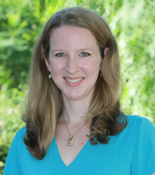
Jennifer Trueblood
Assistant Professor, Cognitive Sciences
Ph.D., Cognitive Science, Indiana University Bloomington, 2012
M.A., Mathematics, Indiana University Bloomington, 2009
Cognitive scientist Jennifer Trueblood uses experimental work combined with mathematical modeling to study how people make judgments and decisions. Her
research investigates dynamic models of multi-alternative, multi-attribute decision-making, applications of quantum probability theory to subjective
judgments, and deficits in decision processes associated with risky behaviors such as drug abuse. Her work has been published in Psychological Review and Cognitive Science, and she has two book chapters on quantum probability models of decision-making. She comes to UCI after having completed her
graduate degree at Indiana University where she was supported by the National Science Foundation.
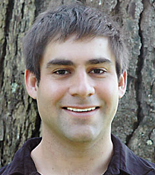
Graeme Boushey
Assistant Professor, Political Science
Ph.D., Political Science, University of Washington, Seattle, 2007
M.A., Political Science, University of Washington, Seattle, 2004
Graeme Boushey's research specializations include public policy innovation and political decision-making in America, particularly at the state level.
His recent book, Policy Diffusion Dynamics in America, explores the issue of why some policies - like vaccination policies and tobacco control programs
- spread more rapidly across states than others. Boushey contends that different patterns of policy diffusion can be explained by variations in the
particular features of policies and the political and institutional traits of states, as well as differences in interest group carriers. He has
provided perspectives on these topics to a variety of media outlets, including the Associated Press, NPR Marketplace, and local news media. Prior to
joining the faculty at UCI, Boushey was a Robert Wood Johnson Scholar in Health Policy Research at the University of Michigan, and an assistant
professor of political science at San Francisco State University.
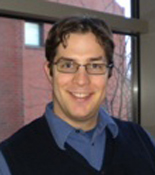
James Hull
Lecturer with Potential Security of Employment, Social Sciences
Ph.D., Sociology, University of North Carolina at Chapel Hill, 2010
James (Jim) Hull comes to UCI from Brown University where he's spent the past two years as a postdoctoral research associate with the Environmental
Change Initiative & Population Studies Training Center. His research focuses on relationships, migration and monetization; his findings have been
published in the Brazilian Journal of Population Studies and Asian Pacific Migration Journal. His work has been supported by the National Science
Foundation and Carolina Population Center and the University of North Carolina at Chapel Hill. As a new lecturer with potential security of employment in social
sciences, he brings experience teaching both undergraduate and graduate courses in sociology.
Read on...
In memoriam: Renowned UCI scholar R. Duncan Luce
Recipient of the National Medal of Science, influential figure in social sciences
 R. Duncan Luce, a pioneering mathematical psychologist at UC Irvine and National Medal of Science winner, died Saturday, Aug. 11, after a short illness. He was 87. Luce, Distinguished Research Professor of cognitive sciences & economics, is hailed as one of the most influential figures in the social sciences. He combined formal math models and psychological experiments to understand and predict human behavior, fundamentally altering our understanding of how individuals and groups make decisions. His books, including Individual Choice Behavior, are recognized widely as groundbreaking in economics and in psychology and have been used by generations of students and colleagues. Luce's work over half a century yielded more than 250 scientific articles and nine books and crossed disciplinary boundaries to offer an innovative perspective on human behavior. R. Duncan Luce, a pioneering mathematical psychologist at UC Irvine and National Medal of Science winner, died Saturday, Aug. 11, after a short illness. He was 87. Luce, Distinguished Research Professor of cognitive sciences & economics, is hailed as one of the most influential figures in the social sciences. He combined formal math models and psychological experiments to understand and predict human behavior, fundamentally altering our understanding of how individuals and groups make decisions. His books, including Individual Choice Behavior, are recognized widely as groundbreaking in economics and in psychology and have been used by generations of students and colleagues. Luce's work over half a century yielded more than 250 scientific articles and nine books and crossed disciplinary boundaries to offer an innovative perspective on human behavior.
Read on...
UCI makes Sierra magazine's "Coolest Schools" list for third consecutive year
Ranking reflects campus's Earth-friendly infrastructure, programs and research
 We knew it all along, and now it's official: UC Irvine is cool. For the third year running, UCI made the list of the top 10 "Coolest Schools," announced today by Sierra magazine. The annual ranking salutes U.S. colleges and universities that help solve climate problems, make significant efforts to operate sustainably, and help prepare the next generation of leaders in this arena. Judged on education, research, operations and management practices, UCI placed ninth. We knew it all along, and now it's official: UC Irvine is cool. For the third year running, UCI made the list of the top 10 "Coolest Schools," announced today by Sierra magazine. The annual ranking salutes U.S. colleges and universities that help solve climate problems, make significant efforts to operate sustainably, and help prepare the next generation of leaders in this arena. Judged on education, research, operations and management practices, UCI placed ninth.
Read on...
SAEP closes out another successful year
Program helps prepare first generation undergrads for graduate school
 The evening of July 27 was an emotional one for participants in the School of Social Sciences Summer Academic Enrichment Program. For five weeks, the
group of 20 highly motivated, first generation undergrads lived and studied together, dedicating themselves to 14+ hour days spent honing their
research, analytic and communication skills. Their goal: to gain the skills and knowledge necessary to pursue a graduate or professional-degreed
education. Under the direction of social sciences faculty, staff and graduate students, participants drafted policy memos on a number of issues
including a proposed exit strategy for Afghanistan, poverty in the U.S., and UC's admissions policies. They defended their positions and ideas in
debates backed by formal research, and their successful efforts culminated in a formal ceremony at the University Club on July 27, marking the program's
22nd class of graduates.
The evening of July 27 was an emotional one for participants in the School of Social Sciences Summer Academic Enrichment Program. For five weeks, the
group of 20 highly motivated, first generation undergrads lived and studied together, dedicating themselves to 14+ hour days spent honing their
research, analytic and communication skills. Their goal: to gain the skills and knowledge necessary to pursue a graduate or professional-degreed
education. Under the direction of social sciences faculty, staff and graduate students, participants drafted policy memos on a number of issues
including a proposed exit strategy for Afghanistan, poverty in the U.S., and UC's admissions policies. They defended their positions and ideas in
debates backed by formal research, and their successful efforts culminated in a formal ceremony at the University Club on July 27, marking the program's
22nd class of graduates.
Read on for a list of our newest SAEP alumni and to see photos from their experience. Congrats, SAEP class of 2012!
Mobile payments: The way of the future?
Bill Maurer, anthropology professor and Institute for Money, Technology and Financial Inclusion director, on digital payments
 Following Starbucks' mid-August announcement to partner with Square for digital payment offerings, media and industry have been calling upon digital payments expert Bill Maurer, anthropology and law professor and Institute for Money, Technology and Financial Inclusion director, for perspective. Here, he discusses digital payments with CNBC's Halftime Report. Following Starbucks' mid-August announcement to partner with Square for digital payment offerings, media and industry have been calling upon digital payments expert Bill Maurer, anthropology and law professor and Institute for Money, Technology and Financial Inclusion director, for perspective. Here, he discusses digital payments with CNBC's Halftime Report.
Watch online...
Democrats, Republicans woo Latinos at conventions
Comments from Louis DeSipio, Chicano/Latino studies and political science professor
 From KQED News: Los Angeles Mayor Antonio Villaraigosa kicked-off the Democratic National Convention Tuesday night. Both the Democrats and Republicans
took care to court Latino voters by showcasing Latinos in high party places at their conventions - the Republicans had New Mexico governor Susanna
Martinez and Florida Senator Marco Rubio. The Democrats are featuring Villaraigosa and San Antonio mayor Julian Castro. But beyond the VIPs, how do the
platforms treat issues Latinos care about? Host Cy Musiker talks with Louis DeSipio, who has been following the conventions. He's a professor of
Chicano/Latino studies at UC Irvine.
From KQED News: Los Angeles Mayor Antonio Villaraigosa kicked-off the Democratic National Convention Tuesday night. Both the Democrats and Republicans
took care to court Latino voters by showcasing Latinos in high party places at their conventions - the Republicans had New Mexico governor Susanna
Martinez and Florida Senator Marco Rubio. The Democrats are featuring Villaraigosa and San Antonio mayor Julian Castro. But beyond the VIPs, how do the
platforms treat issues Latinos care about? Host Cy Musiker talks with Louis DeSipio, who has been following the conventions. He's a professor of
Chicano/Latino studies at UC Irvine.
Listen in...
Does the minimum wage hurt the poor?
David Neumark, economics Chancellor's Professor and Center for Economics & Public Policy director, weighs in
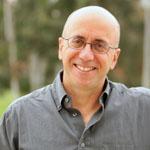 From NPR Marketplace: Recently, Congressional Democrats introduced a bill that would raise the federal minimum wage from $7.25 to $9.80 over the next
two years. It's not expected to make much headway this year, but it's got people talking about the pros and cons of the idea. To get to the heart of
this debate, I took two economists to the heart of minimum-wage country to have them hash it out... In one corner: Bob Pollin at the University of
Massachusetts at Amherst. In the other: David Neumark at the University of California, Irvine.
From NPR Marketplace: Recently, Congressional Democrats introduced a bill that would raise the federal minimum wage from $7.25 to $9.80 over the next
two years. It's not expected to make much headway this year, but it's got people talking about the pros and cons of the idea. To get to the heart of
this debate, I took two economists to the heart of minimum-wage country to have them hash it out... In one corner: Bob Pollin at the University of
Massachusetts at Amherst. In the other: David Neumark at the University of California, Irvine.
Listen in...
What makes a protest successful?
David Meyer, sociology professor, provides perspective
 From KJZZ.org: Tom Jenney is the Arizona director of Americans for Prosperity, a group which organizes grassroots support for various causes. Dr. David
Meyer is professor of Sociology and Political Science at UC Irvine and the author of The Politics of Protest: Social Movements in America. Jenney says
protest movements aren't a tool just for the right or left, they're for anyone who feels powerless or as though their rights have been violated. He says
successful protests are fundamentally organic. Meyer disagrees and says organizations help some of the most successful protests. Meyer says a successful
protest raises an issue and induces elected officials to take action. He says people protest when they feel voting isn't having the effect they want it
to.
From KJZZ.org: Tom Jenney is the Arizona director of Americans for Prosperity, a group which organizes grassroots support for various causes. Dr. David
Meyer is professor of Sociology and Political Science at UC Irvine and the author of The Politics of Protest: Social Movements in America. Jenney says
protest movements aren't a tool just for the right or left, they're for anyone who feels powerless or as though their rights have been violated. He says
successful protests are fundamentally organic. Meyer disagrees and says organizations help some of the most successful protests. Meyer says a successful
protest raises an issue and induces elected officials to take action. He says people protest when they feel voting isn't having the effect they want it
to.
Listen in...
Brewer and Elyachar receive social sciences research excellence awards
Each honor carries a $5,000 prize
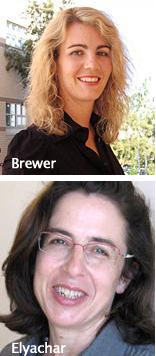 Alyssa Brewer, cognitive sciences assistant professor, and Julia Elyachar, anthropology associate professor, have been named 2011-12
recipients of research awards from the School of Social Sciences. Each honor carries a $5,000 prize. Alyssa Brewer, cognitive sciences assistant professor, and Julia Elyachar, anthropology associate professor, have been named 2011-12
recipients of research awards from the School of Social Sciences. Each honor carries a $5,000 prize.
Brewer is this year's recipient of the Social Science Assistant Professor Research Award. Established in 2005-06, the honor recognizes research
excellence accompanied by a strong project proposal from a junior faculty member in social sciences. A visual neuroscientist, Brewer uses brain imaging
and behavioral research to gain a better understanding of the organization and functions of the regions of the brain devoted to processing visual
information. Her supported research project focuses on visual rehabilitation therapies for stroke victims. She has been a member of the UCI cognitive
sciences faculty since 2007 and holds a Ph.D. in neuroscience and an M.D. from the School of Medicine at Stanford University.
Elyachar is the inaugural recipient of the Social Science Associate Professor Research Award. This new award recognizes research excellence and a
project proposal by a newly tenured faculty member in social sciences. Elyachar, who also joined the UCI faculty in 2007, has extensively studied the
anthropology of the Middle East. Her main site of ethnographic research is Cairo, Egypt. Following the January 2011 uprisings, Elyachar organized public
events and a special online feature in Cultural Anthropology called "Revolution and Counterrevolution in Egypt." Her supported project builds on this
previous work to examine the role of communications technologies in the Egyptian uprisings. Elyachar has a master's and doctorate in anthropology and
Middle Eastern Studies from Harvard University.
Read on...
Aspects of religion are very much embedded in public life (op-ed)
An op-ed by Kelsey Norman, political science graduate student, featured in iPolitics
 From iPolitics: As everyone is well aware, Egypt is undergoing mass political change. In a surprise move early last week, the recently-elected Muslim
Brotherhood President Mohamed Morsy shocked Egyptians and the international community alike by sending top armed forces officials into early retirement
and by striking down an addendum to the 30th March Constitutional Declaration that would have curbed his powers. Greeted by both exuberance on behalf of
Morsy supporters as well as outcries from other political groups, this sudden seizing of presidential authority has led to a week of speculation over
the future of the balance of power in the country.
From iPolitics: As everyone is well aware, Egypt is undergoing mass political change. In a surprise move early last week, the recently-elected Muslim
Brotherhood President Mohamed Morsy shocked Egyptians and the international community alike by sending top armed forces officials into early retirement
and by striking down an addendum to the 30th March Constitutional Declaration that would have curbed his powers. Greeted by both exuberance on behalf of
Morsy supporters as well as outcries from other political groups, this sudden seizing of presidential authority has led to a week of speculation over
the future of the balance of power in the country.
Read on...
Marketing finance in the aftermath of crisis
A blog post by Taylor Nelms, anthropology graduate student, featured on Charisma Consumer Market Studies
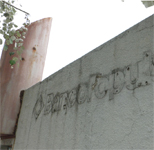 From Charisma: In 1998 and 1999, a serious financial crisis shocked Ecuadorians. Over the course of two years, more than a dozen banks failed, including the country's largest, and a series of bailouts left more than half of Ecuador's financial system in the hands of the central government deposit insurance agency, created in the midst of the crisis. After a surprise bank holiday and the freezing of savings accounts; escalating inflation and devaluation of Ecuador's currency, the sucre; sharp increases in impoverishment and political instability; and the near-paralysis of the economy, government officials decided - controversially, apparently as a last resort, and with little (if any) outside consultation - to abandon the sucre and officially adopt the US dollar as Ecuador's national currency.
From Charisma: In 1998 and 1999, a serious financial crisis shocked Ecuadorians. Over the course of two years, more than a dozen banks failed, including the country's largest, and a series of bailouts left more than half of Ecuador's financial system in the hands of the central government deposit insurance agency, created in the midst of the crisis. After a surprise bank holiday and the freezing of savings accounts; escalating inflation and devaluation of Ecuador's currency, the sucre; sharp increases in impoverishment and political instability; and the near-paralysis of the economy, government officials decided - controversially, apparently as a last resort, and with little (if any) outside consultation - to abandon the sucre and officially adopt the US dollar as Ecuador's national currency.
Read on...
SPOTLIGHT EVENT: Foxes, Henhouses, and Commissions: Assessing the Nonpartisan Model in Election Administration, Redistricting, and Campaign Finance
September 14, 8:30 a.m.-4:30 p.m. in
School of Law, EDU 1111
 For many years, especially since the 2000 presidential election controversy, scholars have debated whether nonpartisan actors should replace partisan actors or a bipartisan commission in administering elections, conducting redistricting and policing the campaign finance system. Some states recently have adopted more nonpartisan models, including California's redistricting commission and Wisconsin's Government Accountability Board, although most states have retained partisan or bipartisan control. This symposium, sponsored by the UC Irvine School of Law, UC Irvine Law Review, and UCI Center for the Study of Democracy, will offer empirical, legal, normative, theoretical and historical perspectives on the use of partisanship in the agencies governing election administration, redistricting and campaign finance laws. How should the success or failure of such institutions be assessed? Are nonpartisan agencies normatively preferable to partisan and bipartisan agencies in achieving the goals of the political system? What explains why jurisdictions adopt or fail to adopt nonpartisan institutions? The symposium will bring together leading scholars in the field of election law and political science to consider such questions in the weeks leading up to the presidential election of 2012.
For many years, especially since the 2000 presidential election controversy, scholars have debated whether nonpartisan actors should replace partisan actors or a bipartisan commission in administering elections, conducting redistricting and policing the campaign finance system. Some states recently have adopted more nonpartisan models, including California's redistricting commission and Wisconsin's Government Accountability Board, although most states have retained partisan or bipartisan control. This symposium, sponsored by the UC Irvine School of Law, UC Irvine Law Review, and UCI Center for the Study of Democracy, will offer empirical, legal, normative, theoretical and historical perspectives on the use of partisanship in the agencies governing election administration, redistricting and campaign finance laws. How should the success or failure of such institutions be assessed? Are nonpartisan agencies normatively preferable to partisan and bipartisan agencies in achieving the goals of the political system? What explains why jurisdictions adopt or fail to adopt nonpartisan institutions? The symposium will bring together leading scholars in the field of election law and political science to consider such questions in the weeks leading up to the presidential election of 2012.
Learn more...
|
 |










 R. Duncan Luce, a pioneering mathematical psychologist at UC Irvine and National Medal of Science winner, died Saturday, Aug. 11, after a short illness. He was 87. Luce, Distinguished Research Professor of cognitive sciences & economics, is hailed as one of the most influential figures in the social sciences. He combined formal math models and psychological experiments to understand and predict human behavior, fundamentally altering our understanding of how individuals and groups make decisions. His books, including Individual Choice Behavior, are recognized widely as groundbreaking in economics and in psychology and have been used by generations of students and colleagues. Luce's work over half a century yielded more than 250 scientific articles and nine books and crossed disciplinary boundaries to offer an innovative perspective on human behavior.
R. Duncan Luce, a pioneering mathematical psychologist at UC Irvine and National Medal of Science winner, died Saturday, Aug. 11, after a short illness. He was 87. Luce, Distinguished Research Professor of cognitive sciences & economics, is hailed as one of the most influential figures in the social sciences. He combined formal math models and psychological experiments to understand and predict human behavior, fundamentally altering our understanding of how individuals and groups make decisions. His books, including Individual Choice Behavior, are recognized widely as groundbreaking in economics and in psychology and have been used by generations of students and colleagues. Luce's work over half a century yielded more than 250 scientific articles and nine books and crossed disciplinary boundaries to offer an innovative perspective on human behavior.  We knew it all along, and now it's official: UC Irvine is cool. For the third year running, UCI made the list of the top 10 "Coolest Schools," announced today by Sierra magazine. The annual ranking salutes U.S. colleges and universities that help solve climate problems, make significant efforts to operate sustainably, and help prepare the next generation of leaders in this arena. Judged on education, research, operations and management practices, UCI placed ninth.
We knew it all along, and now it's official: UC Irvine is cool. For the third year running, UCI made the list of the top 10 "Coolest Schools," announced today by Sierra magazine. The annual ranking salutes U.S. colleges and universities that help solve climate problems, make significant efforts to operate sustainably, and help prepare the next generation of leaders in this arena. Judged on education, research, operations and management practices, UCI placed ninth.  The evening of July 27 was an emotional one for participants in the School of Social Sciences Summer Academic Enrichment Program. For five weeks, the
group of 20 highly motivated, first generation undergrads lived and studied together, dedicating themselves to 14+ hour days spent honing their
research, analytic and communication skills. Their goal: to gain the skills and knowledge necessary to pursue a graduate or professional-degreed
education. Under the direction of social sciences faculty, staff and graduate students, participants drafted policy memos on a number of issues
including a proposed exit strategy for Afghanistan, poverty in the U.S., and UC's admissions policies. They defended their positions and ideas in
debates backed by formal research, and their successful efforts culminated in a formal ceremony at the University Club on July 27, marking the program's
22nd class of graduates.
The evening of July 27 was an emotional one for participants in the School of Social Sciences Summer Academic Enrichment Program. For five weeks, the
group of 20 highly motivated, first generation undergrads lived and studied together, dedicating themselves to 14+ hour days spent honing their
research, analytic and communication skills. Their goal: to gain the skills and knowledge necessary to pursue a graduate or professional-degreed
education. Under the direction of social sciences faculty, staff and graduate students, participants drafted policy memos on a number of issues
including a proposed exit strategy for Afghanistan, poverty in the U.S., and UC's admissions policies. They defended their positions and ideas in
debates backed by formal research, and their successful efforts culminated in a formal ceremony at the University Club on July 27, marking the program's
22nd class of graduates.  Following Starbucks' mid-August announcement to partner with Square for digital payment offerings, media and industry have been calling upon digital payments expert Bill Maurer, anthropology and law professor and Institute for Money, Technology and Financial Inclusion director, for perspective. Here, he discusses digital payments with CNBC's Halftime Report.
Following Starbucks' mid-August announcement to partner with Square for digital payment offerings, media and industry have been calling upon digital payments expert Bill Maurer, anthropology and law professor and Institute for Money, Technology and Financial Inclusion director, for perspective. Here, he discusses digital payments with CNBC's Halftime Report.
 From KQED News: Los Angeles Mayor Antonio Villaraigosa kicked-off the Democratic National Convention Tuesday night. Both the Democrats and Republicans
took care to court Latino voters by showcasing Latinos in high party places at their conventions - the Republicans had New Mexico governor Susanna
Martinez and Florida Senator Marco Rubio. The Democrats are featuring Villaraigosa and San Antonio mayor Julian Castro. But beyond the VIPs, how do the
platforms treat issues Latinos care about? Host Cy Musiker talks with Louis DeSipio, who has been following the conventions. He's a professor of
Chicano/Latino studies at UC Irvine.
From KQED News: Los Angeles Mayor Antonio Villaraigosa kicked-off the Democratic National Convention Tuesday night. Both the Democrats and Republicans
took care to court Latino voters by showcasing Latinos in high party places at their conventions - the Republicans had New Mexico governor Susanna
Martinez and Florida Senator Marco Rubio. The Democrats are featuring Villaraigosa and San Antonio mayor Julian Castro. But beyond the VIPs, how do the
platforms treat issues Latinos care about? Host Cy Musiker talks with Louis DeSipio, who has been following the conventions. He's a professor of
Chicano/Latino studies at UC Irvine.  From NPR Marketplace: Recently, Congressional Democrats introduced a bill that would raise the federal minimum wage from $7.25 to $9.80 over the next
two years. It's not expected to make much headway this year, but it's got people talking about the pros and cons of the idea. To get to the heart of
this debate, I took two economists to the heart of minimum-wage country to have them hash it out... In one corner: Bob Pollin at the University of
Massachusetts at Amherst. In the other: David Neumark at the University of California, Irvine.
From NPR Marketplace: Recently, Congressional Democrats introduced a bill that would raise the federal minimum wage from $7.25 to $9.80 over the next
two years. It's not expected to make much headway this year, but it's got people talking about the pros and cons of the idea. To get to the heart of
this debate, I took two economists to the heart of minimum-wage country to have them hash it out... In one corner: Bob Pollin at the University of
Massachusetts at Amherst. In the other: David Neumark at the University of California, Irvine.
 From KJZZ.org: Tom Jenney is the Arizona director of Americans for Prosperity, a group which organizes grassroots support for various causes. Dr. David
Meyer is professor of Sociology and Political Science at UC Irvine and the author of The Politics of Protest: Social Movements in America. Jenney says
protest movements aren't a tool just for the right or left, they're for anyone who feels powerless or as though their rights have been violated. He says
successful protests are fundamentally organic. Meyer disagrees and says organizations help some of the most successful protests. Meyer says a successful
protest raises an issue and induces elected officials to take action. He says people protest when they feel voting isn't having the effect they want it
to.
From KJZZ.org: Tom Jenney is the Arizona director of Americans for Prosperity, a group which organizes grassroots support for various causes. Dr. David
Meyer is professor of Sociology and Political Science at UC Irvine and the author of The Politics of Protest: Social Movements in America. Jenney says
protest movements aren't a tool just for the right or left, they're for anyone who feels powerless or as though their rights have been violated. He says
successful protests are fundamentally organic. Meyer disagrees and says organizations help some of the most successful protests. Meyer says a successful
protest raises an issue and induces elected officials to take action. He says people protest when they feel voting isn't having the effect they want it
to.  Alyssa Brewer, cognitive sciences assistant professor, and Julia Elyachar, anthropology associate professor, have been named 2011-12
recipients of research awards from the School of Social Sciences. Each honor carries a $5,000 prize.
Alyssa Brewer, cognitive sciences assistant professor, and Julia Elyachar, anthropology associate professor, have been named 2011-12
recipients of research awards from the School of Social Sciences. Each honor carries a $5,000 prize. From iPolitics: As everyone is well aware, Egypt is undergoing mass political change. In a surprise move early last week, the recently-elected Muslim
Brotherhood President Mohamed Morsy shocked Egyptians and the international community alike by sending top armed forces officials into early retirement
and by striking down an addendum to the 30th March Constitutional Declaration that would have curbed his powers. Greeted by both exuberance on behalf of
Morsy supporters as well as outcries from other political groups, this sudden seizing of presidential authority has led to a week of speculation over
the future of the balance of power in the country.
From iPolitics: As everyone is well aware, Egypt is undergoing mass political change. In a surprise move early last week, the recently-elected Muslim
Brotherhood President Mohamed Morsy shocked Egyptians and the international community alike by sending top armed forces officials into early retirement
and by striking down an addendum to the 30th March Constitutional Declaration that would have curbed his powers. Greeted by both exuberance on behalf of
Morsy supporters as well as outcries from other political groups, this sudden seizing of presidential authority has led to a week of speculation over
the future of the balance of power in the country.  From Charisma: In 1998 and 1999, a serious financial crisis shocked Ecuadorians. Over the course of two years, more than a dozen banks failed, including the country's largest, and a series of bailouts left more than half of Ecuador's financial system in the hands of the central government deposit insurance agency, created in the midst of the crisis. After a surprise bank holiday and the freezing of savings accounts; escalating inflation and devaluation of Ecuador's currency, the sucre; sharp increases in impoverishment and political instability; and the near-paralysis of the economy, government officials decided - controversially, apparently as a last resort, and with little (if any) outside consultation - to abandon the sucre and officially adopt the US dollar as Ecuador's national currency.
From Charisma: In 1998 and 1999, a serious financial crisis shocked Ecuadorians. Over the course of two years, more than a dozen banks failed, including the country's largest, and a series of bailouts left more than half of Ecuador's financial system in the hands of the central government deposit insurance agency, created in the midst of the crisis. After a surprise bank holiday and the freezing of savings accounts; escalating inflation and devaluation of Ecuador's currency, the sucre; sharp increases in impoverishment and political instability; and the near-paralysis of the economy, government officials decided - controversially, apparently as a last resort, and with little (if any) outside consultation - to abandon the sucre and officially adopt the US dollar as Ecuador's national currency.  For many years, especially since the 2000 presidential election controversy, scholars have debated whether nonpartisan actors should replace partisan actors or a bipartisan commission in administering elections, conducting redistricting and policing the campaign finance system. Some states recently have adopted more nonpartisan models, including California's redistricting commission and Wisconsin's Government Accountability Board, although most states have retained partisan or bipartisan control. This symposium, sponsored by the UC Irvine School of Law, UC Irvine Law Review, and UCI Center for the Study of Democracy, will offer empirical, legal, normative, theoretical and historical perspectives on the use of partisanship in the agencies governing election administration, redistricting and campaign finance laws. How should the success or failure of such institutions be assessed? Are nonpartisan agencies normatively preferable to partisan and bipartisan agencies in achieving the goals of the political system? What explains why jurisdictions adopt or fail to adopt nonpartisan institutions? The symposium will bring together leading scholars in the field of election law and political science to consider such questions in the weeks leading up to the presidential election of 2012.
For many years, especially since the 2000 presidential election controversy, scholars have debated whether nonpartisan actors should replace partisan actors or a bipartisan commission in administering elections, conducting redistricting and policing the campaign finance system. Some states recently have adopted more nonpartisan models, including California's redistricting commission and Wisconsin's Government Accountability Board, although most states have retained partisan or bipartisan control. This symposium, sponsored by the UC Irvine School of Law, UC Irvine Law Review, and UCI Center for the Study of Democracy, will offer empirical, legal, normative, theoretical and historical perspectives on the use of partisanship in the agencies governing election administration, redistricting and campaign finance laws. How should the success or failure of such institutions be assessed? Are nonpartisan agencies normatively preferable to partisan and bipartisan agencies in achieving the goals of the political system? What explains why jurisdictions adopt or fail to adopt nonpartisan institutions? The symposium will bring together leading scholars in the field of election law and political science to consider such questions in the weeks leading up to the presidential election of 2012.